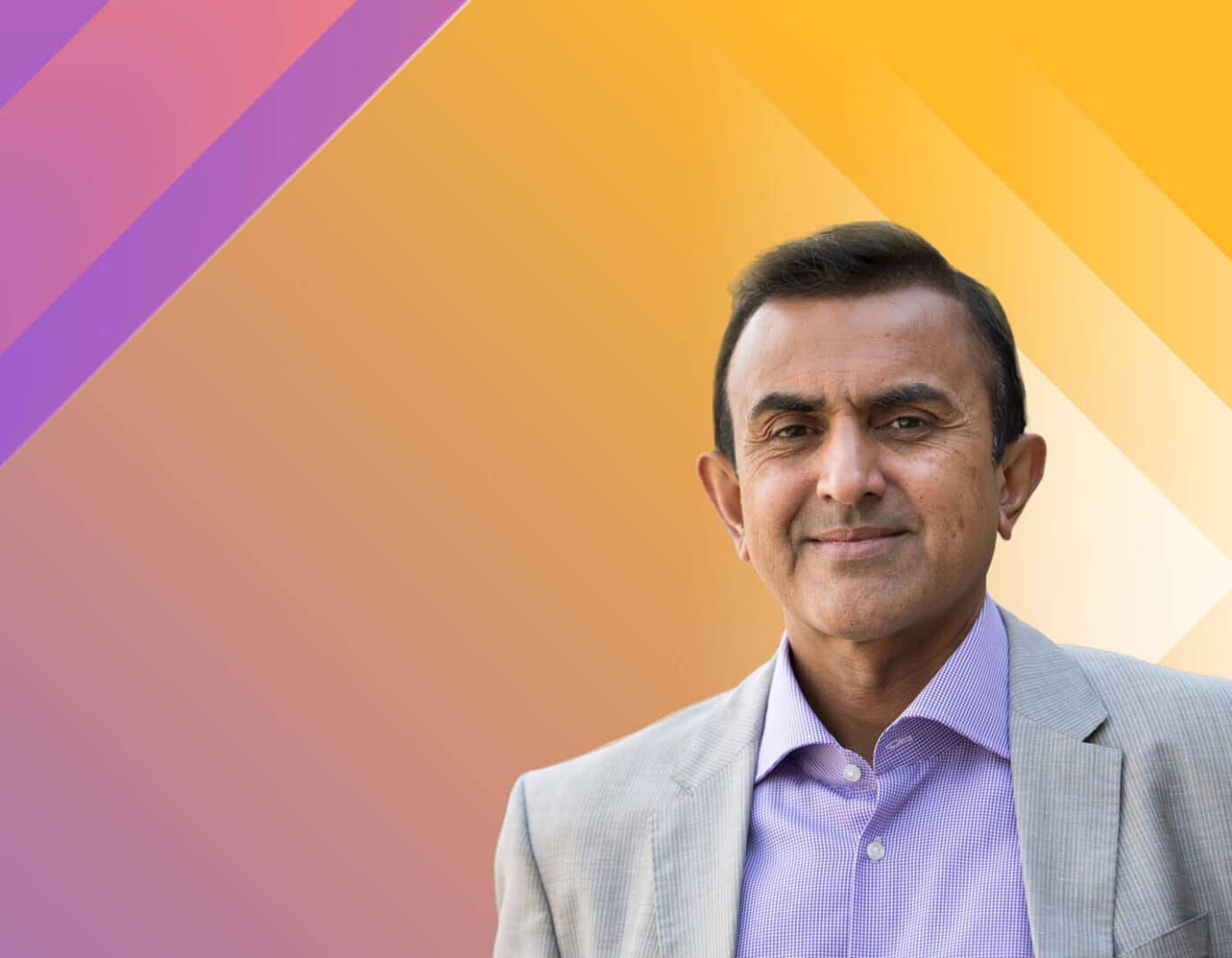
In our fast-paced world, it’s often easy to take our brain for granted, said Doraiswamy, but doing so can be to the detriment of the brain’s long-term performance.
“The most important investment you can make is in yourself, your brain and your wellbeing,” he told Orchestrating Winning Performance participants during his keynote address. “If you treat your brain like a computer and let it gather dust (…) its warranty is going to be very short.”
While we may think that our brain’s patterns become fixed by a certain age, studies have shown that it is possible to change our brain at any age. “Many of us think we are hardwired by our genes,” he said. “But these [genes] can be turned on or turned off by lifestyle.”
Doraiswamy outlined four key changes that participants can make to help promote wellbeing, enhance cognition and slow down brain deterioration.
Prioritize workplace mental health
Even before the pandemic, some 400 million people worldwide suffered from mental ill health, he said. Yet more than 80% of respondents in a survey by Oracle said they would rather talk to a robot than to their manager or HR department about their mental health issues.
Doraiswamy said it was important for companies to provide a mix of tools and technology to support workers, especially those lower down in the hierarchy who are likely to feel greater effects from stress.
He highlighted exercise, meditation and time in nature as three of the best tools to help workers handle stressful lifestyles. Exercise can improve the flow of blood to brain, while nature and meditation can help push the reset button and improve your sense of empathy.
Practice mindfulness to slow down brain deterioration and boost immunity
Meditative practices have been shown to slow age-related brain shrinkage, Doraiswamy said.
He cited a study done by the Chopra center examining how a week-long intensive meditational retreat affected the biomarkers of ageing. The aim was to address whether the health benefits were the result of meditation or just a “vacation effect.”
In the study, adult women aged 30 to 60 spent one week at a 5* hotel resort. The participants were divided into a vacation-only group and a meditation-arm group to allow researchers to study the genetic signature of the vacation effect, as well as the additive benefit of a planned meditation yoga retreat.
Results showed that the group that meditated has a 40% increase in telomerase, one of the biomarkers of biological ageing and longevity.
Just going on vacation alone changed the gene expression on between 500-600 genes, Doraiswamy said, particularly those involved with stress and immune function. Meditation provided additive affects on about 300 further genes. “Meditation and mindfulness seem to have very profound effects on the immune system,” he said.
The brain is capable of change at any age
The theory that the adult brain can’t change has been disproven but change still takes time and practice to cultivate healthy habits.
Experiments have shown that when you put mice in a fun Disney-like environment there was a 40% increase in nerve cells. The same experiments have now been shown in humans. “If you practice a habit for six months to a year, entire new net networks are formed,” he said.
We can also work on improving our memories. Studies show that we forget 50% of what we have learned within 24 hours and 80% within 30 days, he said.
To counteract this, our brain needs mini booster sessions. Doraiswamy advised trying to visualize what you’ve learned. For example, if you are reading a book, see if you can remember what you’ve read a few chapters prior. Re-reading information can also act like a “booster” for your brain.
Downtime and sleep are as important as work
Sleep is essential to remove toxins that build up in the brain. Around ten years ago, researchers discovered the glymphatic system, a network of vessels that clear waste from the central nervous system, mostly during sleep.
Between seven and eight hours sleep per night is optimal, Doraiswamy said. Napping can be effective, but should be limited to 15-20 minutes, otherwise you may wake up in the middle of a sleep cycle.
“During the day, the brain is too busy, so a lot of metabolic toxins build up – including those related to Alzheimer’s,” he said. Those who suffer from a lack of sleep are more susceptible to viruses, suffer short-term memory loss, and have a higher risk of obesity.
Exercise is also important. Even healthy people can throw spontaneous clots from the heart into the brain which it is able to filter out. “If you lead an unhealthy lifestyle, plaques build up and can create blockages. A heart healthy lifestyle can be one way to prevent this.”
He warned, however, that everything – even exercise – should be done in moderation. “Ultramarathon runners and people who do Iron Man competitions actually increase the rate of shrinkage in the brain because the brain treats it as a stress incident.”



